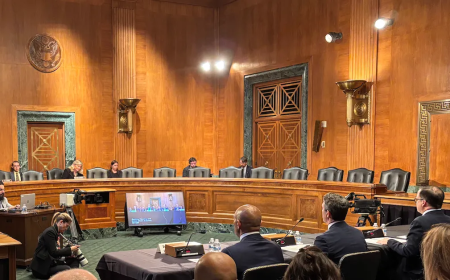HTX withdraws license application from Hong Kong SFC
Cryptocurrency exchange HTX, formerly Huobi Global, has withdrawn its application for a license from the Securities and Futures Commission (SFC) in Hong Kong. The decision made public on February 23 through a filing on the SFC website, marks a significant development in the regulatory landscape of virtual asset trading platforms operating in the region. HTX […]

Cryptocurrency exchange HTX, formerly Huobi Global, has withdrawn its application for a license from the Securities and Futures Commission (SFC) in Hong Kong. The decision made public on February 23 through a filing on the SFC website, marks a significant development in the regulatory landscape of virtual asset trading platforms operating in the region.
HTX reasons for withdrawal unclear
HTX, a trading platform backed by entrepreneur Justin Sun, who hails from China, has not disclosed the reasons behind its withdrawal. Despite repeated attempts to reach out, a spokesperson from HTX remained unavailable for comment at the time of this report.
HTX and its sister exchange, Poloniex have faced security breaches. In a notable incident in early November, Poloniex suffered a loss of $125 million from its hot wallet when a hacker targeted the exchange, absconding with a variety of over 175 different tokens. Despite these challenges, Sun assured users that such losses were “within manageable limits” and could be covered using the exchanges’ revenue.
While HTX’s decision to withdraw its license application from the Hong Kong Securities and Futures Commission (SFC) may raise questions about the exchange’s plans in the region, it also underscores the complex regulatory environment faced by cryptocurrency platforms worldwide. The withdrawal comes when regulatory scrutiny on virtual asset trading platforms is intensifying, with authorities seeking to establish clear frameworks to ensure investor protection and market integrity.
The lack of disclosure regarding the reasons behind HTX’s withdrawal adds to the intrigue surrounding the decision. Speculation within the cryptocurrency community suggests various possibilities, ranging from concerns over regulatory compliance to strategic shifts in the company’s business model. However, these remain conjectures without official confirmation from HTX or its representatives.
Background and exploits
The incident involving Poloniex’s loss of $125 million in a hacking incident is a stark reminder of the persistent security risks facing cryptocurrency exchanges. Despite advancements in cybersecurity measures, exchanges continue to be targeted by sophisticated hackers aiming to exploit system vulnerabilities. The magnitude of the loss experienced by Poloniex highlights the need for constant vigilance and proactive security measures within the industry.
Justin Sun’s reassurance regarding the safety of user deposits at HTX and Poloniex is aimed at restoring customer confidence following the security breaches. Sun’s assertion that the losses were “within manageable limits” and could be covered using the exchanges’ revenue seeks to alleviate concerns about the financial stability of the platforms. However, the efficacy of these measures in the face of evolving cybersecurity threats remains a subject of debate.
The resilience demonstrated by HTX and Poloniex in recovering from the hacking incidents and resuming user withdrawals is commendable. It reflects the efforts undertaken by these platforms to fortify their security infrastructure and restore normalcy following disruptive events. However, it also underscores the ongoing challenges posed by cybersecurity risks in cryptocurrency and the need for continuous innovation in risk management practices.
The withdrawal of HTX’s license application and the security incidents involving Poloniex are cautionary tales for other cryptocurrency exchanges operating in Hong Kong and beyond. As regulators tighten their oversight and investors demand greater transparency and security assurances, exchanges will need to prioritize regulatory compliance and invest in robust cybersecurity measures to safeguard their operations and maintain the trust of their user base.
What's Your Reaction?




































































































